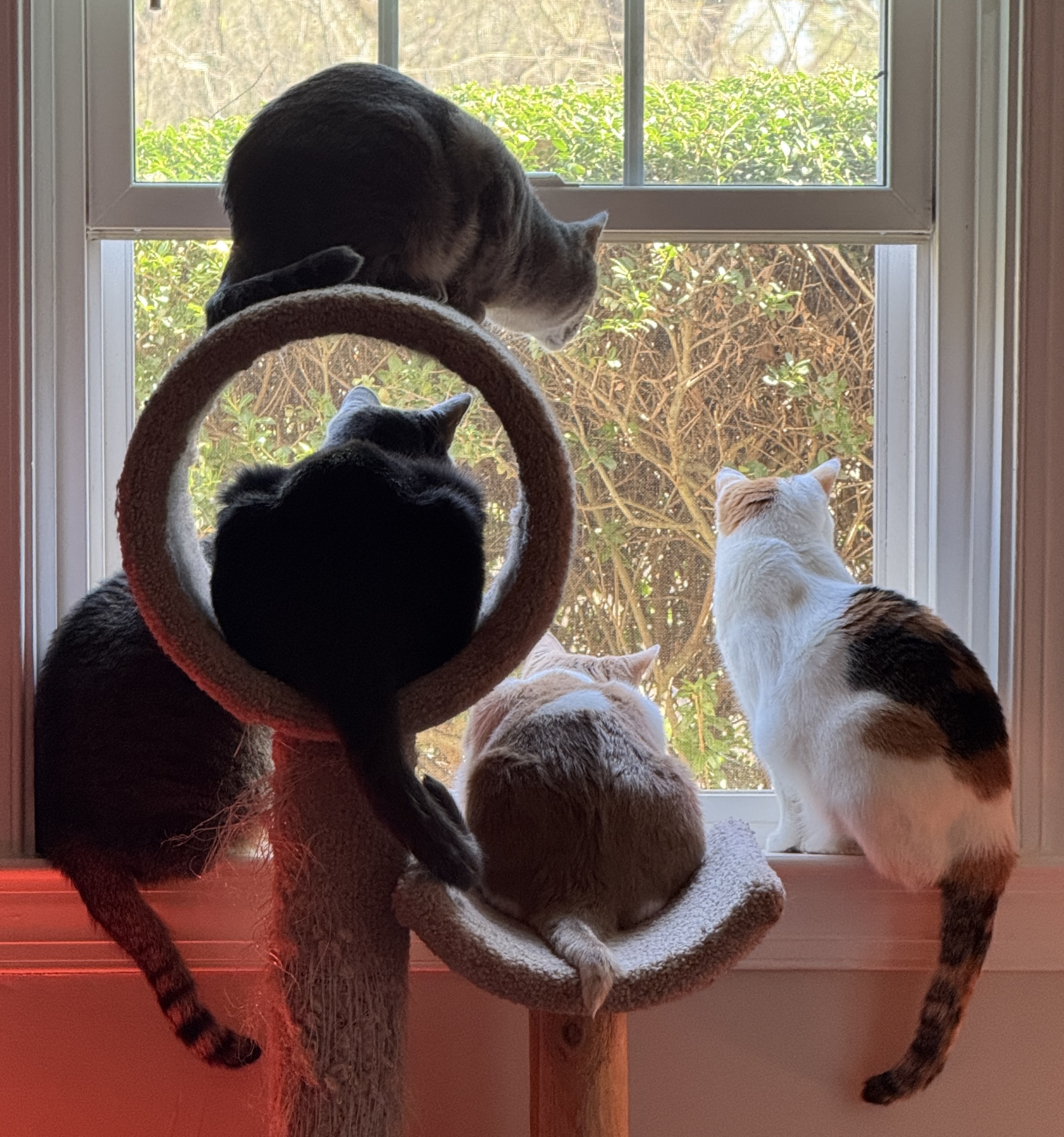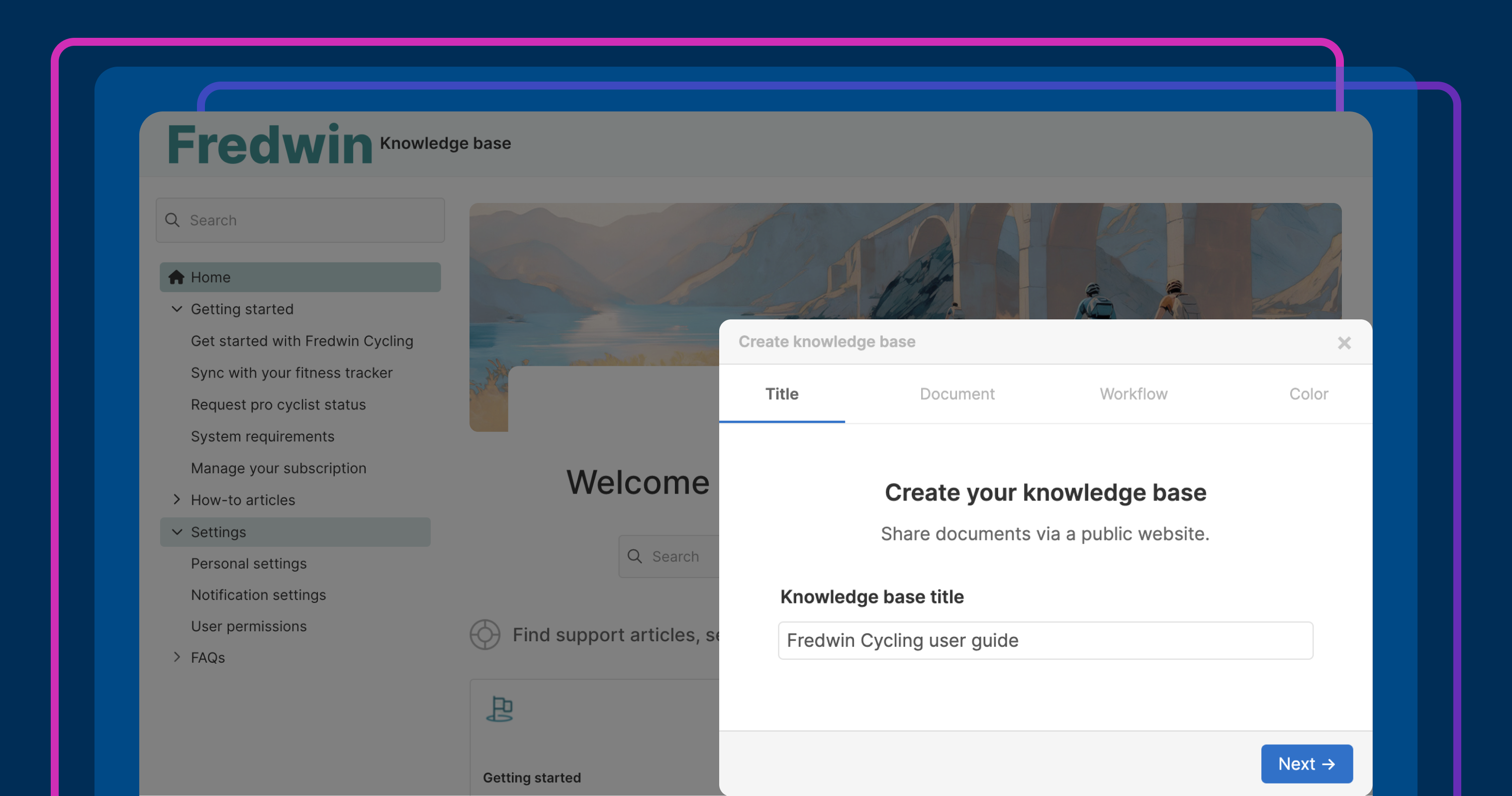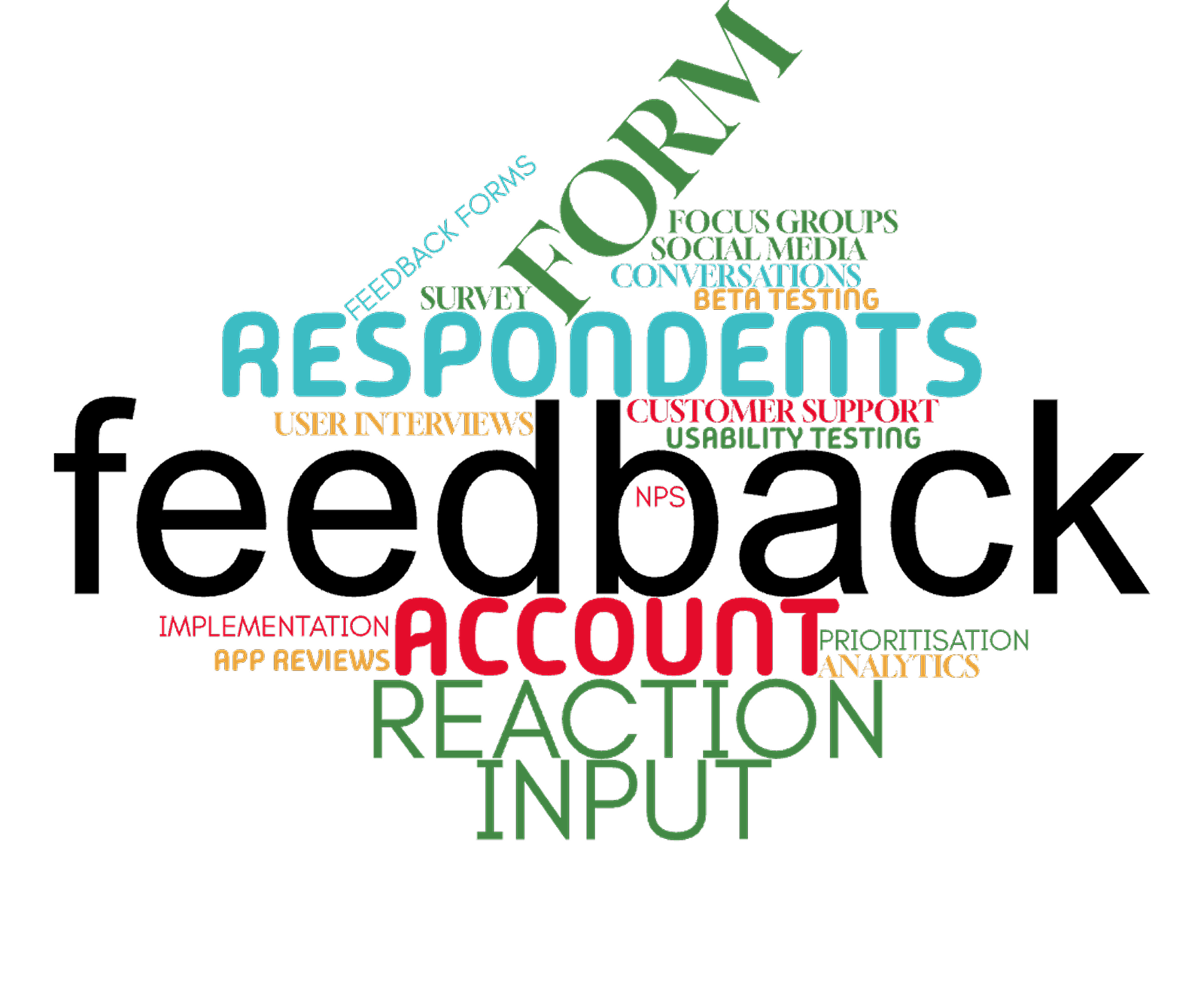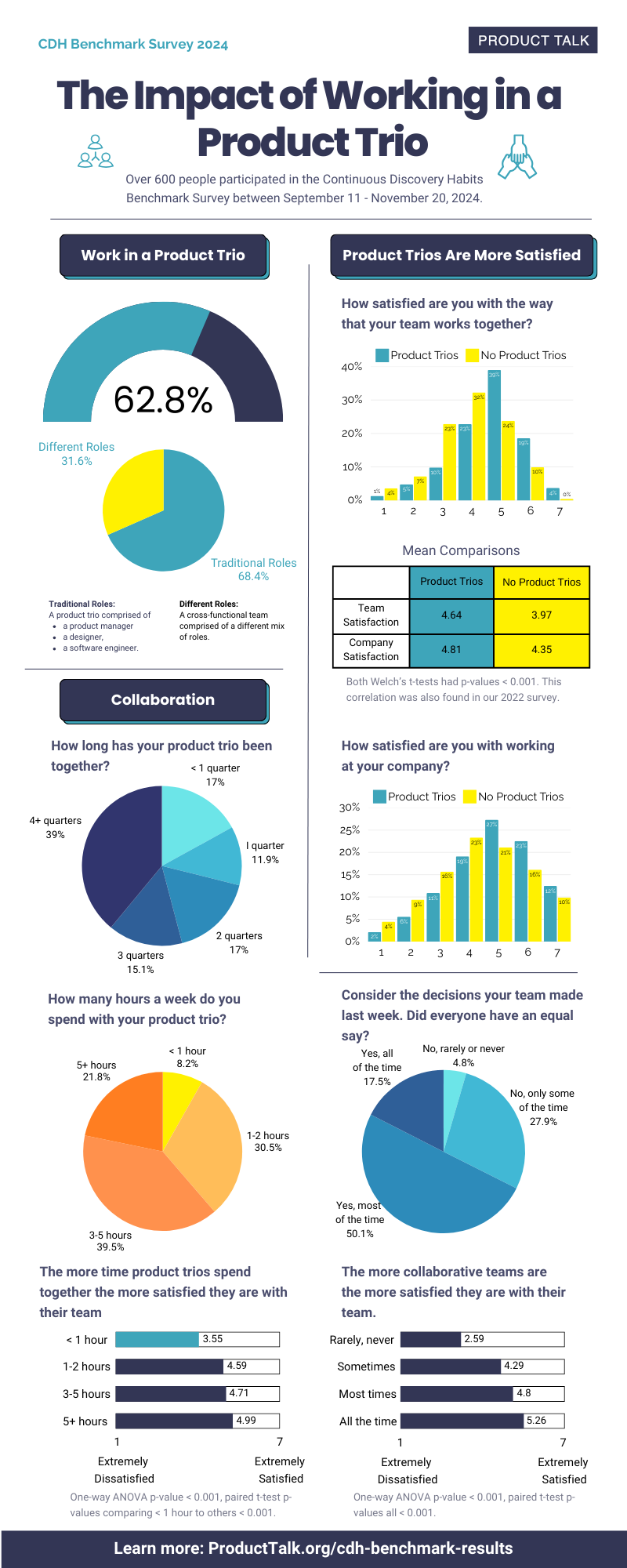coworker doesn’t want to report our boss for harassment, I accidentally let a contact think my dad is still alive, and more
This post was written by Alison Green and published on Ask a Manager. It’s five answers to five questions. Here we go… 1. My coworker doesn’t want to report our boss for harassment Recently a coworker shared information with me about some pretty egregious sexual comments our mutual boss made. My personal feeling is that she needs to share this with HR and/or our company leadership team (we […]

This post was written by Alison Green and published on Ask a Manager.
It’s five answers to five questions. Here we go…
1. My coworker doesn’t want to report our boss for harassment
Recently a coworker shared information with me about some pretty egregious sexual comments our mutual boss made. My personal feeling is that she needs to share this with HR and/or our company leadership team (we are a small startup with less than 50 employees, going to leadership would be fine). She has said she’ll consider it but she just needed to tell someone. Then she asked that I tell no one.
I want to tell our HR anyway because there should be an investigation and/or consequences. What are my obligations in this scenario? If I make an “anonymous” tip, it will be easy to figure out it came from me since (I believe) I am the only person she told. And if it comes out and I don’t tell, am I in trouble for knowing but not reporting (I am not in any sort of legal mandated reporting situation)? Basically, what do I do here?
If you’re a manager, you’re legally obligated to report it; not reporting it would expose your company to legal liability. But if you’re not a manager, that doesn’t apply — and in that case I’d argue that you should respect your coworker’s wishes. While it shouldn’t be this way, the reality is that reporting harassment can have real repercussions for the victim. Hopefully that won’t be the case at your company, but there’s a risk that your coworker’s life at work would get worse, not better, and/or that she’ll be put in (further) uncomfortable situations she doesn’t want to be in, miss out on professional opportunities, or even be pushed out. That’s not a decision you should make on her behalf. I understand the impulse to report your boss, but your coworker is the person who will be most affected if you do, and you should err on the side of respecting her wishes.
2. I accidentally let a contact think my dad is still alive
My dad was born and grew up in another country, let’s say Narnia. After moving here, he continued a very deep interest in and connection with it all his life and made sure it was part of my life growing up.
Flash forward to today: I work in sales and am developing a relationship with a very prominent Narnian company, and in the course of chitchat with my contact it came up that my dad was born in Narnia. He was delighted and now mentions it often when introducing me to other Narnians as a kind of fun fact, and says things like “you’ll have to show X to your dad” or “your dad must be proud you’re working with Narnians” and so on.
The problem: my dad is in fact dead. He passed away about a month before I first met my contact, and I did (and still sometimes do!) habitually refer to him in the present tense, and it simply didn’t occur to me until after the meeting. I realize that sounds sociopathic, but I just … forgot. My contact is so pleased about this Narnian connection and is generally such a lovely man that I don’t know how to clear up this misunderstanding — which has now been going on for about four months — without actually saying, “I forgot that my dad died.” Help!
(For what it’s worth, I think my dad would indeed be very proud that I’m working with Narnians, and would also find this situation extremely funny.)
The next time it comes up and your contact refers to your dad in the present tense, just say, “I should have mentioned — my dad died last year. But you’re absolutely right that he’d be so happy that I’m working with other Narnians!”
There may be a brief moment of awkwardness, which is okay — but it’s likely to just seem like something that got misunderstood in the past, not like you were purposefully hiding anything from him. It’s also possible that he won’t even think about the fact that the previous conversations had been in present tense and will just think there hadn’t been an opportunity for it to come up yet. Mostly he’s likely to be focused on telling you he’s sorry to hear it. And then it will be handled and you won’t have to feel weird about it anymore!
3. My coworker got angry that I gave her time-sensitive info at the start of her shift
Today at work we had a few call-outs. This meant last-second game plan changes. Everyone adjusted just fine, except my coworker Elizabeth.
Elizabeth came into work and started small-talking with people right away. As soon as a supervisor spoke up (after giving her time to finish her conversation) to let her know about workflow changes for the day, she became incredibly frustrated and seemed to be holding back from saying something. I joined in the conversation and let her know I had taken care of some extra work to so she wouldn’t have to adjust from her normal workflow and gave her some follow-up info to make her workday easier. In the middle of us talking to her, she stormed off.
I figured she might be having a hard day so I gave her time to cool off and half an hour later checked in on her. She was still angry and said she couldn’t handle talking about work that early in the day. Her shift just started. This seems unreasonable to me. We work in medical care and if we drop the ball, patients can suffer. We have plenty of time to chat once we get our work done, but much of the work we do is very time-sensitive.
How can I adjust to Elizabeth’s responses in the future? I would like to be compassionate and try to understand where she’s coming from. However, at the moment I plan on not keeping her informed and letting her figure things out on her own, as it’s not my job to manage her emotional responses when I’m just sharing information like I would with anyone else in the workplace. I’d love your feedback on adjustments I could make or if I am being unreasonable with how to handle her.
Elizabeth is being unreasonable; you are not. “Can’t handle talking about work during work time” is a little bananas — I mean, she might feel that way, but that’s something for her to manage on her own, not to make others manage for her. And being visibly frustrated and storming off because you’re trying to update her on time-sensitive work?!
Your instinct that it’s not your job to manage her emotional responses is the right one. But your plan to not keep her informed and let her figure things out on her own might not be; that one depends on whether you have a responsibility to impart info to her and whether patients will be harmed if you don’t. If either of those things are the case and you’re finding yourself hesitant to talk to her because of her volatility, that’s a sign to bring in your manager to help.
4. Can I thank my spouse’s boss for being awesome?
After 20-odd years of retail hell that did their damndest to beat my husband’s self-esteem and sense of worth in the workplace into the dirt, he finally landed in a job that not only pays the bills (and keeps up with inflation), but has him feeling like the extremely experienced and valued employee that he really is. This is mostly thanks to his absolute rockstar of a boss.
She takes care of all of her employees, her unit is the best and most well-liked in the entire state and has won awards from the huge corporate offices, she goes to bat without hesitation for her crew, has open communication, encourages and respects healthy work/home boundaries, and is genuinely a funny and cool person! My husband has witnessed her go above and beyond for her team consistently, both in the every day and when emergencies strike.
Everyone he meets is happy with my husband’s work, and his boss in particular is very pleased, but is there an appropriate way I could pass on thanks for, well, putting an end to literal decades of toxic workplaces that my husband has had to work to make ends meet? It’d probably be weird to pass on a card that says, “Thanks for making a great workplace that I haven’t directly joined but have benefitted from!”
Nope, don’t do it. This is your husband’s relationship to manage, not yours, and it would be overstepping for you to do that (and potentially even a little undermining to your husband, depending on exactly what you shared). Enjoy and appreciate the situation from a remove.
5. Employers that ask for too much info in doctor’s notes
I’m a nurse practitioner working in primary care. I see patients for their annual physicals, maintenance of chronic conditions, and for same-day sick visits.
My question is about doctor’s notes for patients who have called out sick from work. My usual template is as follows (can be edited as needed, obviously): “Please be advised that the above named patient was seen in our office today (date) for an acute condition. They may return to work without restrictions on (date). Please excuse their absence (date range).”
I like it because it says “yes, this person had a medical thing, they’re allowed to work again on this date, their absence was legitimate” but doesn’t get into any unnecessary detail.
But I have been running into situations more often lately where an employer requires very specific things in their sick note — “diagnosis and prognosis” as one example, so they ask me to write that they had the flu and that a complete recovery is expected. I don’t have much of a problem with this in the case of common viral illnesses, but what about anxiety? Or chronic knee pain that’s flared up? I feel this violates the privacy that patients should expect when they visit their doctor. Not to mention when some employers require FMLA paperwork to be completed for any absence three days or longer … this is a huge waste of time for most situations for both the employee and their doctor.
Is there any way to push back on these kind of requirements? Should employees push back? Or should we all just do what HR has decided it likes best?
You’re absolutely right. Doctor’s notes aren’t supposed to contain specific diagnoses, details of medical treatment, or any other private medical info that isn’t directly related to the employee’s ability to perform their job. Legally, notes should be kept to the minimum necessary to fulfill their purpose: a confirmation that the person was seen on a particular date, the need for time off, and any other work-related restrictions. Anything more detailed than that puts the employer at risk of violating the Americans with Disabilities Act, which prohibits them from requesting information beyond what’s “job-related and consistent with business necessity.”
When an employer asks for more info than they’re entitled to, you don’t need to comply. You can provide the info you and the employee are comfortable with and ignore inappropriately invasive questions (or employ vague terms like “temporary condition” or “illness”).
Related:
what’s your boss allowed to ask when you call in sick?



























































































![How One Brand Solved the Marketing Attribution Puzzle [Video]](https://contentmarketinginstitute.com/wp-content/uploads/2025/03/marketing-attribution-model-600x338.png?#)

![Building A Digital PR Strategy: 10 Essential Steps for Beginners [With Examples]](https://buzzsumo.com/wp-content/uploads/2023/09/Building-A-Digital-PR-Strategy-10-Essential-Steps-for-Beginners-With-Examples-bblog-masthead.jpg)











![How to Use GA4 to Track Social Media Traffic: 6 Questions, Answers and Insights [VIDEO]](https://www.orbitmedia.com/wp-content/uploads/2023/06/ab-testing.png)




![[HYBRID] ?? Graphic Designer](https://a5.behance.net/cbf14bc4db9a71317196ed0ed346987c1adde3bb/img/site/generic-share.png)




















